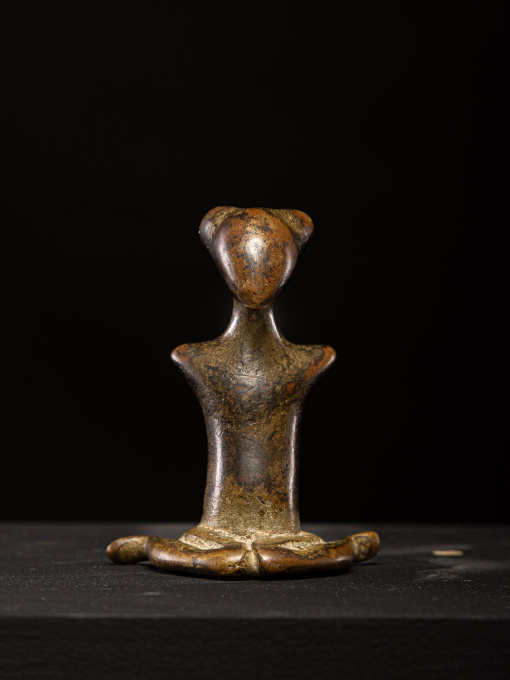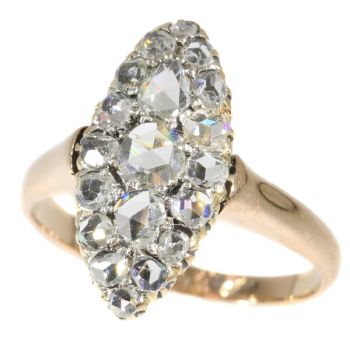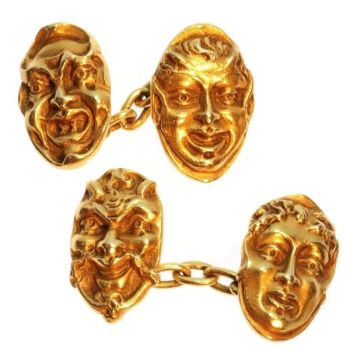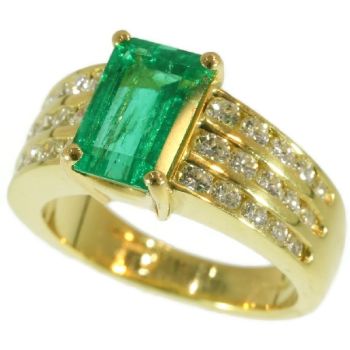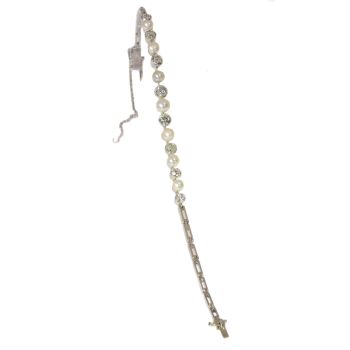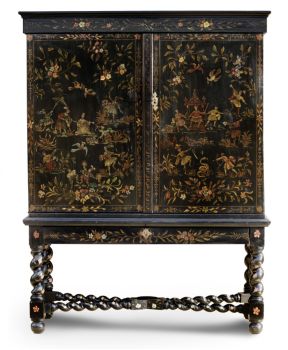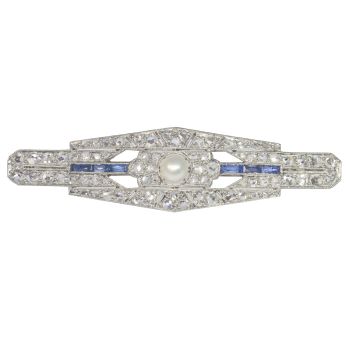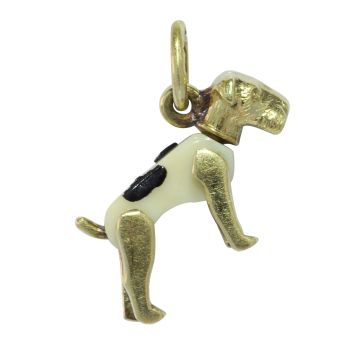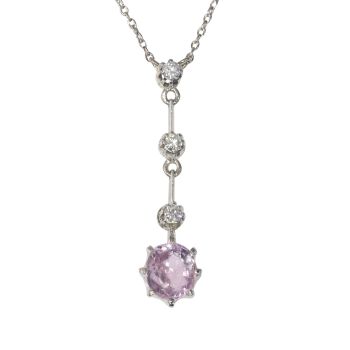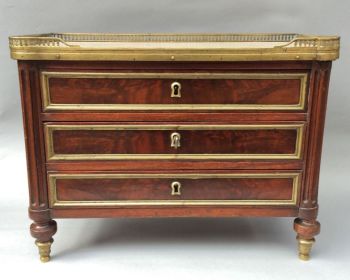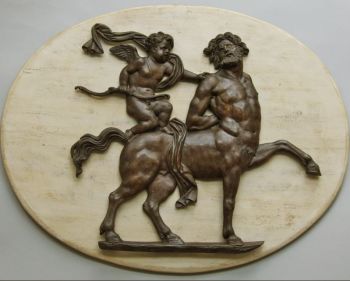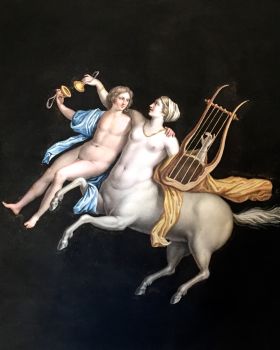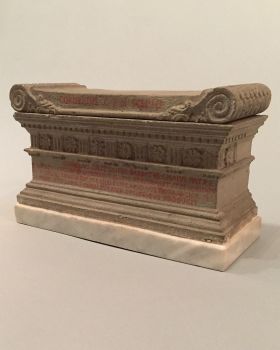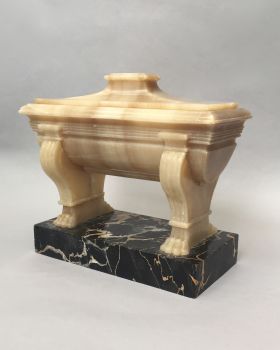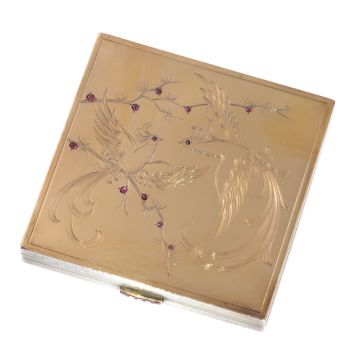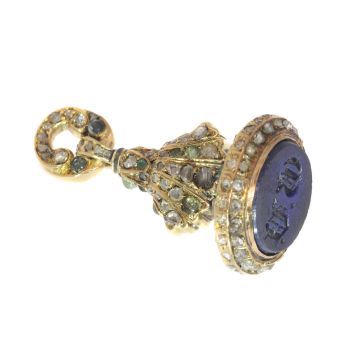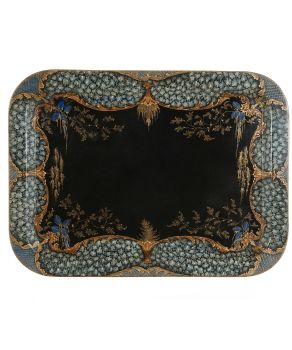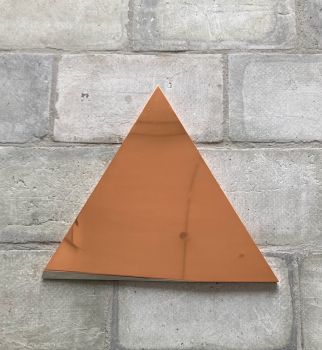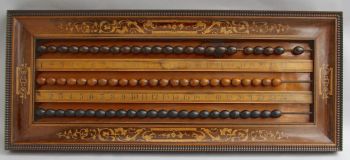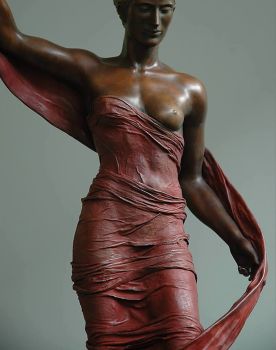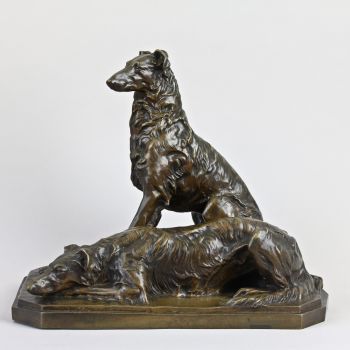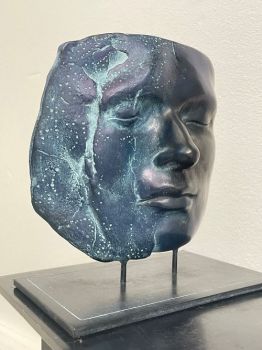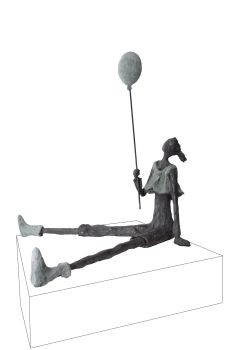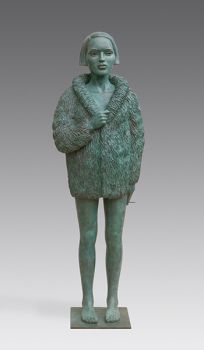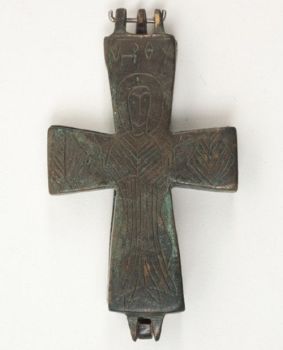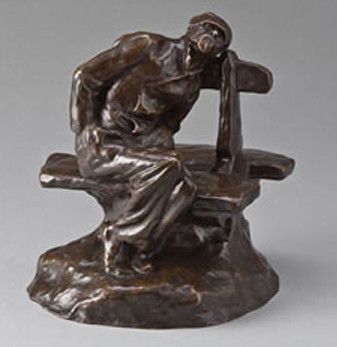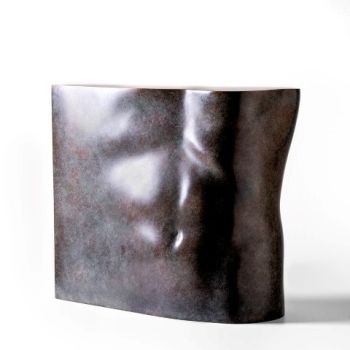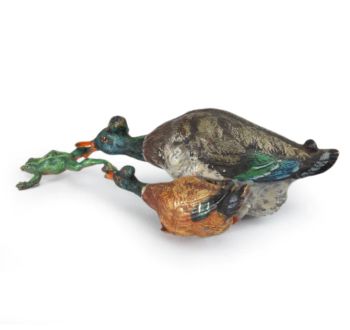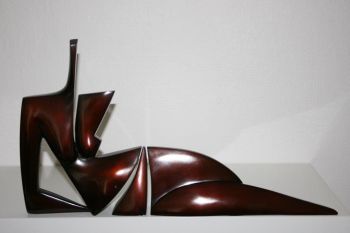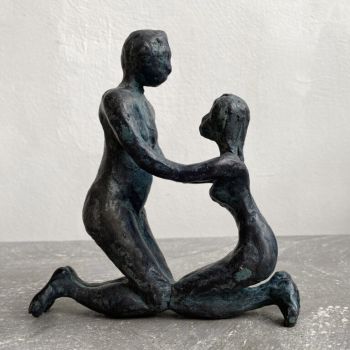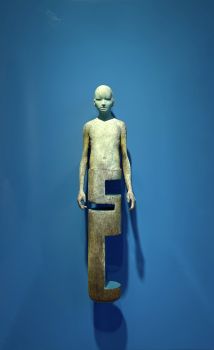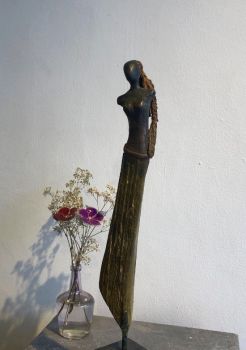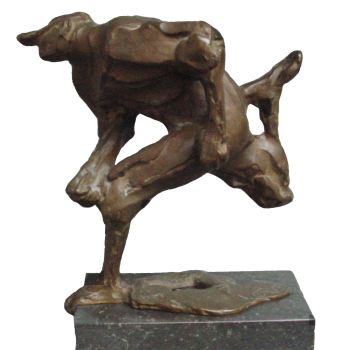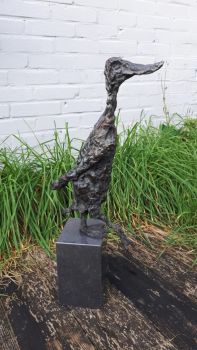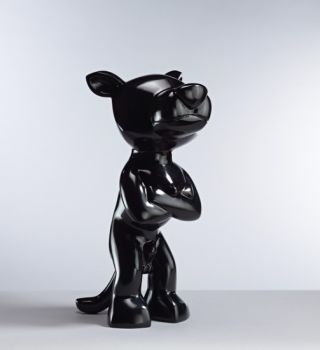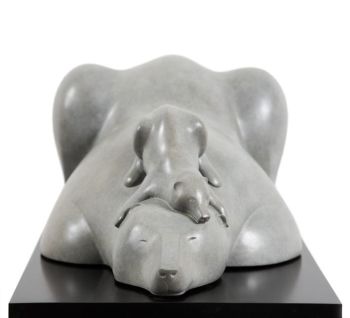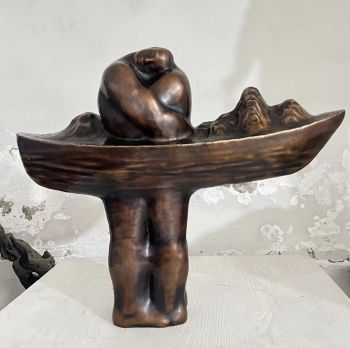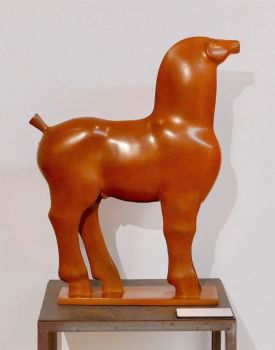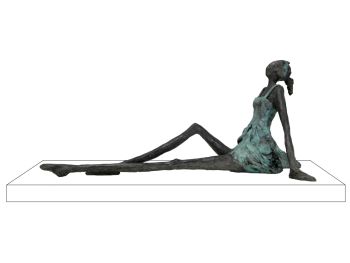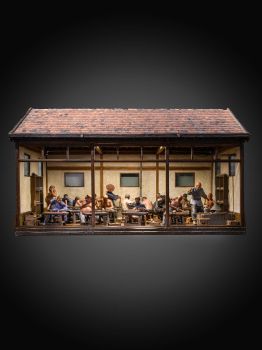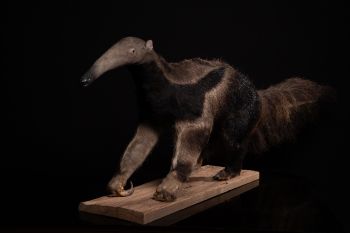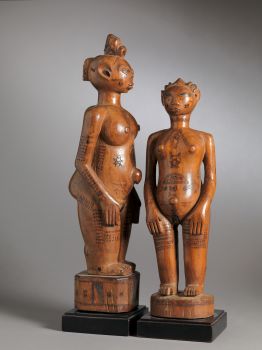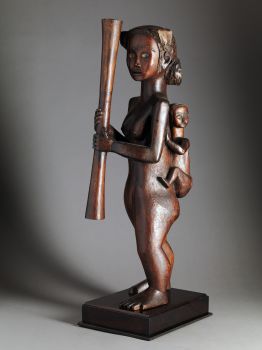Bronze sitting female statue, Kulango People, Ivory Coast 1920 - 1960
Artista Desconhecido
BronzeMetal
13 ⨯ 3 ⨯ 2 cm
ConditionVery good
€ 9.800
Spectandum Gallery
- Sobre arteThis bronze statuette of striking modernity,in a minimalist and refined style is part of an eminently small corpus. The fluidity of the forms and the remarkable purity of the figurine, characterizes the play of tension and balance of Kulango art. To the fluidity of forms is added the remarkable artistic creation of the representation. In addition to its essential dynamics, the body unfolds in a game of tension and perfectly controlled balance, the triangular face with the ophidian aspect stretched forward.See Ricqlès (Paris, 1 July 2001, no. 606) for a very comparable Kulango bronze in the collection of Hubert Goldet.The Kulango originated in the northeastern part of Cote d'Ivoire near Bouna. They eventually occupied Bondoukou (south of Bouna) as well. Some have since moved across the border from Bondoukou into the central western regions of Ghana. The basic method of lost-wax casting has been widely practiced on the African continent for centuries. While it is difficult to establish how the method was developed or introduced to the region, it is clear that West African sculptors were casting brass with this method for several hundred years prior to the arrival of the first Portuguese explorers along the coast in 1484. The technique requires a great deal of skill, involving extensive knowledge of both pottery and metalworking, and a careful attention to changing temperatures to prevent unwanted cracking or other damage to either the clay mold or to the metal sculpture during the casting process. Some of the earliest and most accomplished bronze works found in Africa date to the tenth century and are from a site called Igbo-Ukwu.
- Sobre artista
Pode acontecer que um artista ou criador seja desconhecido.
Algumas obras não devem ser determinadas por quem são feitas ou são feitas por (um grupo de) artesãos. Exemplos são estátuas dos tempos antigos, móveis, espelhos ou assinaturas que não são claras ou legíveis, mas também algumas obras não são assinadas.
Além disso, você pode encontrar a seguinte descrição:
•"Atribuído a …." Na opinião deles, provavelmente uma obra do artista, pelo menos em parte
• “Estúdio de…” ou “Oficina de” Em sua opinião um trabalho executado no estúdio ou oficina do artista, possivelmente sob sua supervisão
• "Círculo de ..." Na opinião deles, uma obra da época do artista mostrando sua influência, intimamente associada ao artista, mas não necessariamente seu aluno
•“Estilo de…” ou “Seguidor de…” Na opinião deles, um trabalho executado no estilo do artista, mas não necessariamente por um aluno; pode ser contemporâneo ou quase contemporâneo
• "Maneira de ..." Na opinião deles, uma obra no estilo do artista, mas de data posterior
•"Depois …." Na opinião deles uma cópia (de qualquer data) de uma obra do artista
• “Assinado…”, “Datado…” ou “Inscrito” Na opinião deles, a obra foi assinada/datada/inscrita pelo artista. A adição de um ponto de interrogação indica um elemento de dúvida
• "Com assinatura ….”, “Com data ….”, “Com inscrição ….” ou “Tem assinatura/data/inscrição” na opinião deles a assinatura/data/inscrição foi adicionada por outra pessoa que não o artista
Você está interessado em comprar esta obra de arte?
Artwork details
Related artworks
- 1 - 4 / 12
Unbekannter Künstler
Two Centaurs, France or Italylate 18th
Preis auf AnfrageRobert Schreuder Antiquair
Unbekannter Künstler
A white jade ‘Lotus Seedpod and Bug’ carving, Qing dynasty, 18th century18th century
Preis auf AnfrageMenken Works of Art
1 - 4 / 24- 1 - 4 / 24
Unbekannter Künstler
Couple Wooden Ancestors Sculptures with Scarifications, Zela People, DRC. 1920 - 1930
Preis auf AnfrageSpectandum Gallery
Unbekannter Künstler
MATERNITY FIGURE, FANG-MABEA, CAMEROON.PROVENANCE R.CAILLOIS-P.RATTON.1920 - 1930
Preis auf AnfrageSpectandum Gallery
Unbekannter Künstler
Pair of 19th C French Taxidermy Dioramas1860 - 1890
Preis auf AnfrageSpectandum Gallery
1 - 4 / 12

